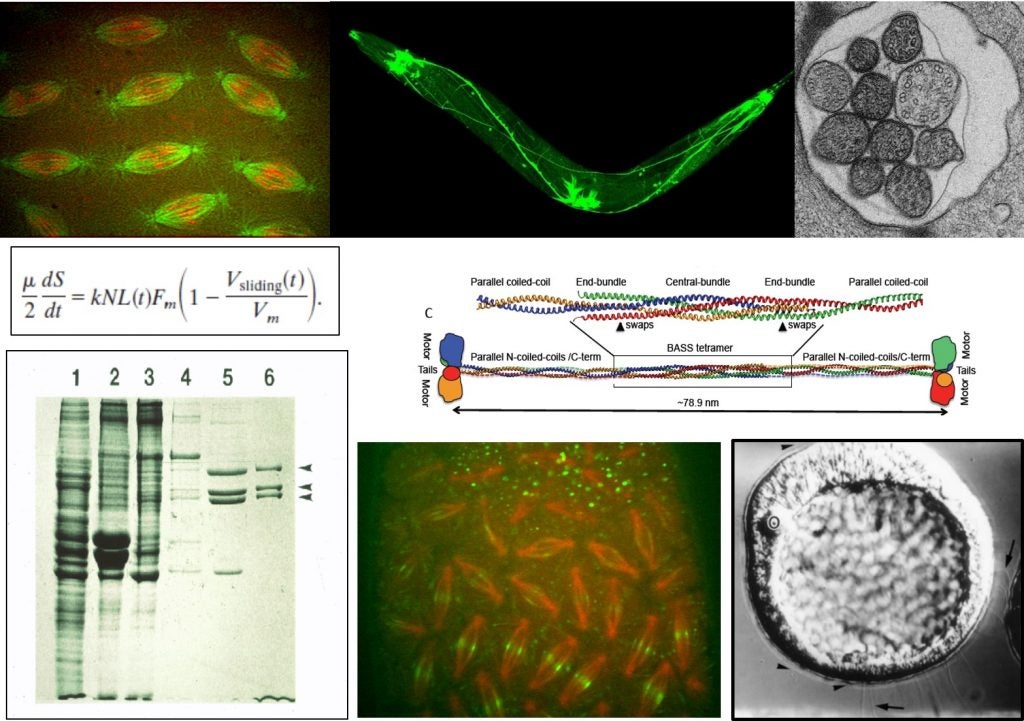
Motor Protein Functions in Mitosis and Ciliogenesis
Our laboratory is interested in the assembly, mechanism of action and biological functions of subcellular, multimeric, macromolecular machines that are intermediate in scale between individual macromolecules and whole cells, specifically (i) mitotic spindles; (ii) motile and sensory cilia; and (iii) the intracellular transport machinery. The moving parts of these machines are cytoskeletal motors and polymers which convert free energy into force and motion in order to carry out their function. Accordingly our research combines studies of the basic biochemistry and molecular biology of microtubule-based motors (kinesins and dyneins) and microtubule polymer dynamics, high resolution time-lapse microscopy of motor action in sensory cilia and mitotic spindles in vivo, and quantitative modeling. Over the years we have studied mitosis, intracellular transport and ciliogenesis in echinoderm embryos, Drosophila embryos and C. elegans neurons. We hope that this combination of approaches will illuminate the molecular and biophysical principles underlying the roles of cytoskeletal motors in building subcellular machines and the mechanism of action of the machines that carry out mitosis and chromosome segregation, intraflagellar transport and cilium biogenesis as well as other critical subcellular processes.
The Scholey lab officially closed in March 2015 when Jon retired on his 60th birthday.
Scholey lab members
Selected publications
Teaching
Jonathan Scholey’s faculty page
Jonathan Scholey’s CV